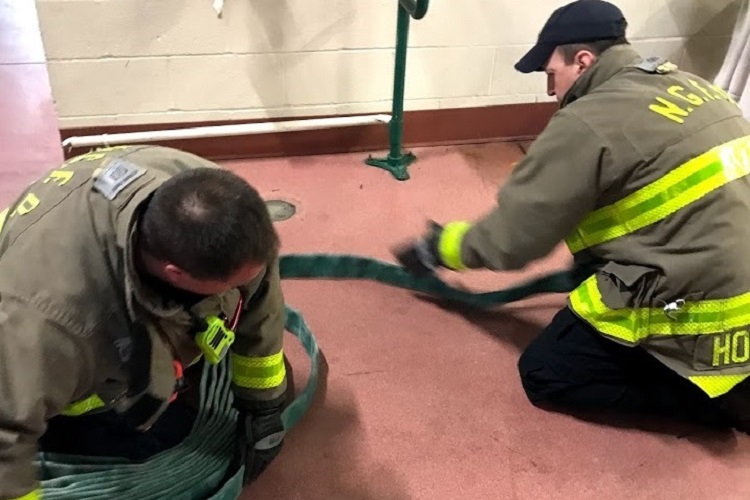
By Andy Young
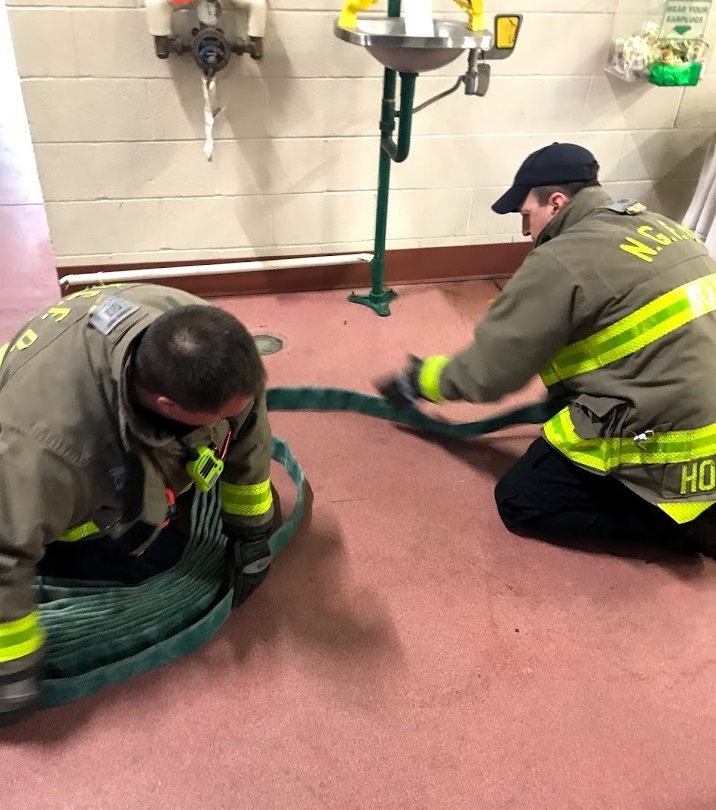
How many times have you sat through a boring slide presentation or simply gone through the motions during a drill that you’ve seemingly done a thousand times before? Do you know that feeling you get when you’re just staring at the clock, thinking about lunch? That’s called “hunger” and we all have it. Professional Powerlifter Mark “Smelly” Bell once said, “Training SHOULD leave you hungry. You should be hungry for more training!” That statement hit home and applies perfectly to fire service training.
It can’t be said enough that firefighting is the best job in the world. However, if that’s the case, we should all finish every training session hungry and wanting more. No firefighter should ever leave training being grateful that it was over and hoping to never do it again. Firefighters should leave training wishing the class was longer or wanting to complete just one more evolution. Better yet, they should be excited to get the chance to apply those new skills in the real world and show what they’ve learned. But how do we make this happen?
RELATED
Rural Connections: The Importance of Training
Training: A Method of Risk Reduction in the Volunteer Fire Service
Increase the Value of Training with a Full-Scale Exercise
The Importance of Lessons Learned During Training
First, be enthusiastic. Go into every training session excited and ready to learn something new or to hone your skills. In some cases, you may know at the start of shift what your training will be. This makes it easier to get yourself “amped up.” Are you stretching lines today? Throwing ladders? Forcing doors? If you don’t love to do that, find a different job. Will you have classroom training? Many of us think that sitting in class and talking about your job is boring, but how often do we sit around and talk about firefighting? View classroom training as exactly that: I get to go and hang out with my brothers and sisters while we talk about the best job in the world. To me, that sounds like a pretty good way to spend my time.
Second, be involved in training. Don’t stand in the back of the group and hope that nobody asks you to do anything. Get your hands dirty, get in there and participate. If you’re in class, ask and answer questions. The people who say they don’t enjoy training are the same ones that get labeled as “duckers” because they hide and get bored. Being an active participant in training, whether it’s hands-on or in a classroom, will make the experience more enjoyable and beneficial for the student AND teacher.
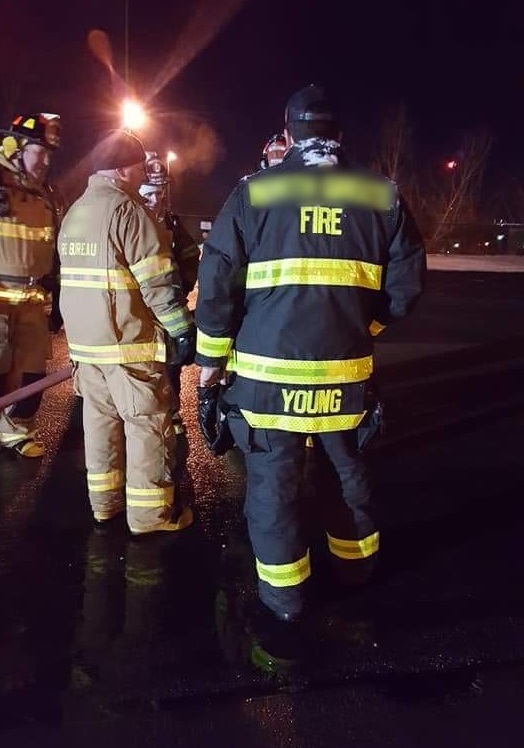
Third, always keep an open mind and go in expecting to learn. The best firefighters are the ones that never let any training pass them by. From the lead instructor to the most senior guy in the room to the brand-new probie, everyone has something to learn. Anyone who goes into something anticipating that it will be boring or that he won’t learn anything will NOT have a good experience. You’ll be amazed at what you’ll pick up when you go into a situation with an open mind and a willingness to learn something new.
Last, be knowledgeable. If you know in advance what the training will be, study up on the subject matter. Almost any fire service topic has been written about, discussed, or has an Internet video associated with it. If you study in advance, you’ll go into training with more confidence and excitement about the training. In addition, you’ll be better equipped to provide guidance to the younger, less experienced students in your class.
So, who is responsible for creating this hunger? First and foremost, it’s the instructor, who sets the tone for training. Recently, I watched an instructor teach a class on fire behavior. It was late at night and I had already been through this training once before, but I was on the edge of my seat watching and listening to him because entered the class in a way that had everyone excited to watch his videos and hear him talk. There really wasn’t much of anything to look at; the instructor simply talked to the class, but his passion kept the classroom’s complete attention.
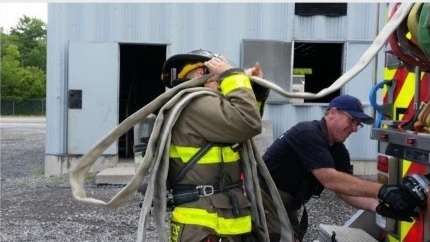
Another Instructor I watched recently found himself in a losing situation. A junior guy on a shift was tasked with taking three companies of firefighters outside to teach a lesson in emergency medical services (EMS) skills. He came into class with almost zero prep time, but his knowledge on and experience with the subject matter allowed him to keep everyone interested and involved. I didn’t hear a single complaint about EMS training as many of the firefighters took multiple turns practicing the skills.
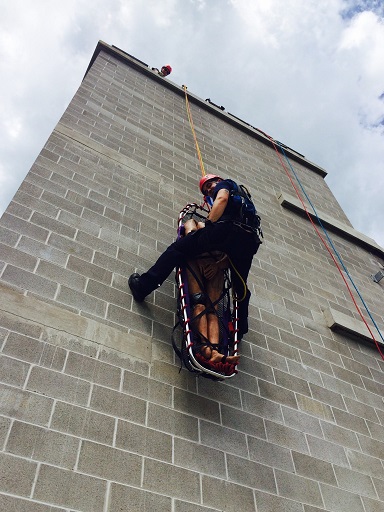
As a student, you are responsible to create and strive for that all-important hunger. A positive attitude truly is contagious. If you go into class excited and willing to learn, it will spread to others around you. When the entire group is participating and enjoying themselves during training, everyone gets more out of it. You don’t need to shout and cheer for your teammates during every evolution, but be willing to help and show your passion to help others learn more and be better firefighters at the end of any training.
Department leaders can also create better training by supporting their instructors. This may mean simply showing instructors that you appreciate the hard work they put into a class or providing them with opportunities to develop their skills further. Conferences and seminars are available all over the country that offer great instructor development and networking possibilities for instructors to ensure that they are offering the best training possible.Last, it falls on the leadership to create a training environment where everyone involved wants to train MORE. This comes first and foremost from leading by example.
If you’re a company lieutenant and you act as though training is beneath you, your firefighters will follow that and be bored; in turn, they will lose out on valuable learning opportunities. On the contrary, if you go into training with a positive attitude and are an active participant, you will create firefighters that cannot wait for their next chance to better themselves.
Great training creates great firefighters, and great firefighters create great training. Each and every one of us is responsible for finding that hunger for training that will better serve our communities and our brothers and sisters. Keep training, keep learning, and stay safe.
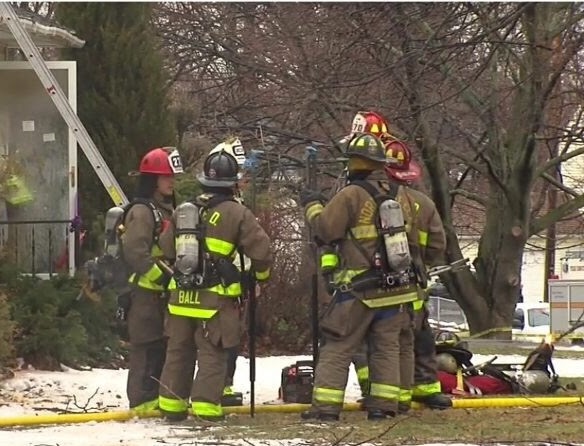
Photos by author.
 Andy Young is a career firefighter and municipal fire instructor with a combination department in upstate New York. He is also a nationally- and state-certified (New York) fire instructor. Young works for Vigilant Fire Service Training, LLC.
Andy Young is a career firefighter and municipal fire instructor with a combination department in upstate New York. He is also a nationally- and state-certified (New York) fire instructor. Young works for Vigilant Fire Service Training, LLC.

